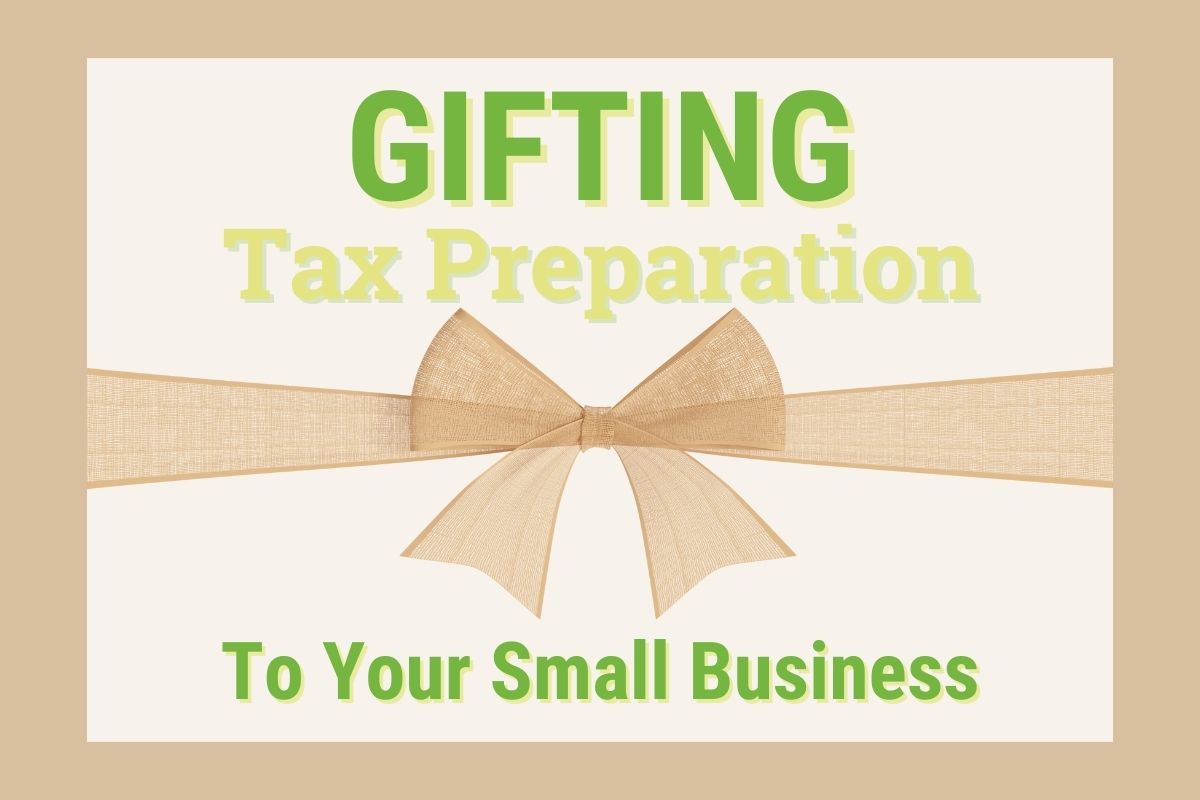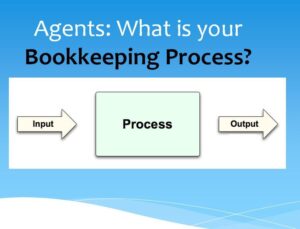You might be thinking, “Tax filing is a few months away; why blog about it now?” However, now is the perfect time to begin, if you have not already done so, to get ready. It is never too early to start. The following tips can help alleviate stress during tax season: In fact, they will enable you to remain positive as you navigate filing taxes each year. So, why not give them a try? Give your small business the gift of being prepared.
FIVE TIPS FOR TAX PREPARATION
Tip 1: Organize Data and Records of Revenue & Expenses
 Organization is the key! This one practice can save you time, energy, and stress. Ideally, you have been organized throughout the year, keeping all important documentation and receipts. However, if your small business records and receipts are in a state of disarray, now is the time to correct the situation.
Organization is the key! This one practice can save you time, energy, and stress. Ideally, you have been organized throughout the year, keeping all important documentation and receipts. However, if your small business records and receipts are in a state of disarray, now is the time to correct the situation.
The first thing to do to become and stay organized is to keep business and personal expenses separate. It is advisable to have a separate bank account and credit card for business expenses. This helps avoid confusion and questions should you be audited.
Next, the type of records to keep are all those that support your revenue, income, dividends (should you have them), and expense claims. These receipts should be itemized and match your transactions. Each receipt must show the following:
- Name and address of the seller or supplier
- Your name and address
- A full description of the goods or services
You will want to keep records for at least 6 years after your last notice of assessment, should you ever be audited.
There are a variety of ways one can organize receipts for the year. Some people purchase an accordion folder to categorize their receipts; others use zip-lock bags and a file box; and others digitize their receipts. Whatever method you choose, make sure it is simple. For ideas on how to organize receipts, click on https://pro-ledger.com/organizing-receipts.
By getting into the practice of taking an hour each month to review, categorize, and file receipts, you will be able to:
- Keep things manageable
- Keep aware of your spending
- Avoid leaving possible deductions on the table
- Avoid an unpleasant audit
Tip 2: Invest in a Proper Bookkeeping Software Program
There are numerous software programs available for small business owners to help keep track of revenue and expenses. Pick one that suits your needs, is inexpensive, and is user-friendly. Pro-Ledger Online is one such program. Be sure to check out its cloud-based features and benefits. By entering your revenue and expenses on a daily or weekly basis, you will be able to prevent a huge scramble at the end of the year. Furthermore, your records are more likely to be accurate, you will have a better understanding of your business, and when it is time to file your taxes, the process will be seamless.
Tip 3: Seek Out Expert Assistance
 When starting out and running a business, one is not likely to be an expert in all areas. Therefore, it is responsible to do what you do best and leave those other areas where you are not an authority to the specialists. While many owners start out by keeping track of their finances themselves, a wise business owner will realize that as the business grows, there are advantages to having an accountant. A good accountant is one who will offer to do more than prepare your financial statements and tax returns. They will work with you throughout the year, finding the best strategies for structuring your business and making sure that your business has taken advantage of all possible tax deductions.
When starting out and running a business, one is not likely to be an expert in all areas. Therefore, it is responsible to do what you do best and leave those other areas where you are not an authority to the specialists. While many owners start out by keeping track of their finances themselves, a wise business owner will realize that as the business grows, there are advantages to having an accountant. A good accountant is one who will offer to do more than prepare your financial statements and tax returns. They will work with you throughout the year, finding the best strategies for structuring your business and making sure that your business has taken advantage of all possible tax deductions.
Tip 4: Take Advantage of Small Business Tax Deductions
 As mentioned above, a good accountant will make sure your business takes advantage of all possible tax deductions. However, as an owner, it is wise to be aware of these deductions during the year so you can be better organized. For example, many small business owners work out of their homes. As such, you can claim a portion of your home expenses that are directly connected to your business, such as utilities, wi-fi, cleaning supplies, property taxes, and so on.
As mentioned above, a good accountant will make sure your business takes advantage of all possible tax deductions. However, as an owner, it is wise to be aware of these deductions during the year so you can be better organized. For example, many small business owners work out of their homes. As such, you can claim a portion of your home expenses that are directly connected to your business, such as utilities, wi-fi, cleaning supplies, property taxes, and so on.
There are numerous additional deductions that your small business can take advantage of, such as advertising and promotional materials, meals and entertainment, vehicle and fuel expenses, accounting, and legal fees. To learn more, you can visit numerous websites on the subject. Be sure to select a website that is relevant to the location of your business.
Tip 5: Keep an Emergency Fund
 Being a small business owner, especially when starting out, can mean periods of uncertainty due to inconsistent cash flow. Income can vary from month to month. Some small businesses may owe tax. As a general rule, it is prudent to keep an emergency fund to cover any dry spells or balances owing. It is also wise to keep an emergency fund to cover personal expenses when you’re revenue is minimal.
Being a small business owner, especially when starting out, can mean periods of uncertainty due to inconsistent cash flow. Income can vary from month to month. Some small businesses may owe tax. As a general rule, it is prudent to keep an emergency fund to cover any dry spells or balances owing. It is also wise to keep an emergency fund to cover personal expenses when you’re revenue is minimal.
As mentioned at the outset of this blog, the biggest gift you can give your small business is being prepared for tax season. There is no time like the present to get started!
_____________________________________________________________________________________
Pro Ledger Online offers a cloud-based bookkeeping solution for small business professionals. Click here for a 30-day free trial. – www.pro-ledger.com “Bookkeeping Made Simple”




